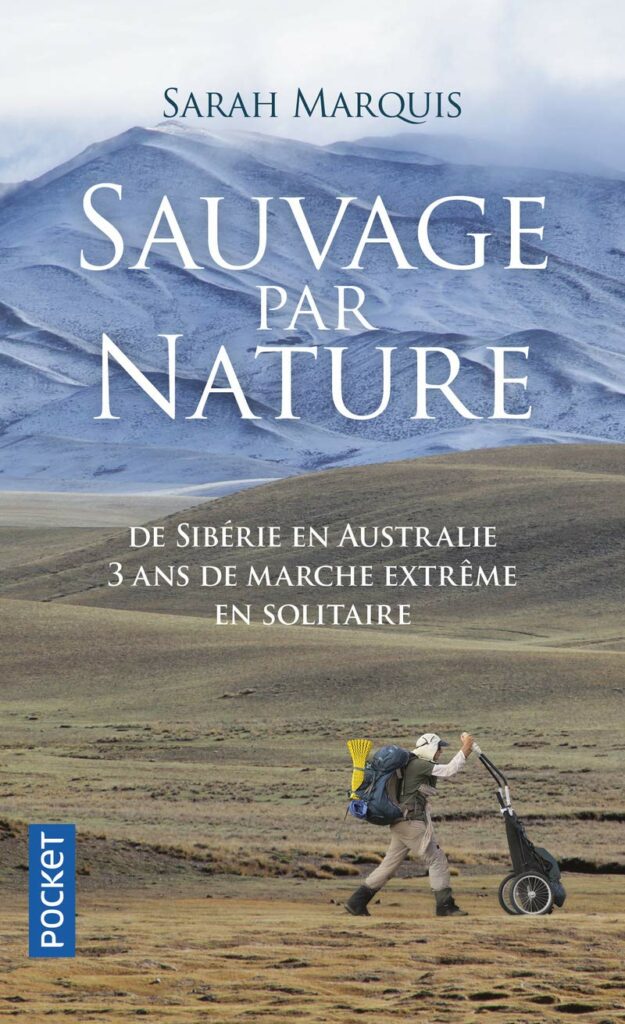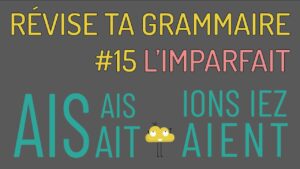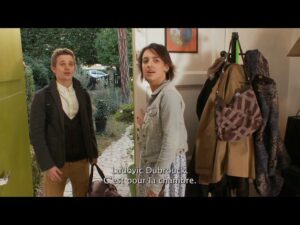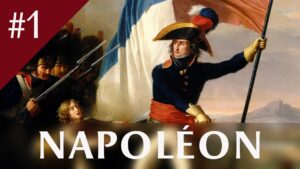Books in French
If you can read English, you can read French.
- I just learned something awesome!
- Bonjour!
- Pardon... Bonjour, comment ça va ?
- Ça va. Making some crêpes. Take a seat. I would offer you un café, but you already seem caffeinated enough.
- Coffee sounds great, thanks! So, I just learned that the word "library" is originally a French word! It meant "bookcase" in very, very old French! And before that, it came from Latin liber, which is the inner bark of a tree, on which you could... write! Mind blown!
- You do know that about 60% of English is originally French, or derived from Latin under the influence of French, right?
- Hum...? Great! Uh... Thanks for the info dump!
- You started it! So, have you been reading some good French livres, my dear bookworm?
- I'm about to! Today, I'm going to pick up my librairie card! They have an awesome French section!
- Bibliothèque.
- Uh?
- Librairie is bookshop. Library is bibliothèque. Hey, did you just spit my crêpe out?!
FAQ: How do you say books in French?
You say livres. This French word somehow exists in English through the word library. Fun fact: librairie means bookshop in French, while bibliothèque (a Greek-based word) means library.
A few French phrases for free French books
- Say that very fast.
- Har har. if you're set to explore the French sections of libraries, bookshops, and websites, the really useful word you should learn is gratuit. It means "free".
- You mean "free of charge"?
- Obviously. "Free" like in "freedom" is libre. Although... we also use the word libre to say gratuit. An audiobook is a livre audio, an ebook is a livre électronique (even though lots of French people just say e-book, like in English). Another useful phrase is domaine public, which I don't need to translate because you speak English and therefore you speak French!
- Love that idea!
- "Literature" is littérature. "Author" is auteur, for male writers or in general. Recently French women have fought for reintroducing the word autrice in the dictionary, which designates a woman writer. "Novel" is roman!
- Okay... So, why do I need to know all those words?
- First, because you're learning French, any French. Second, because lots of free French e-books will be waiting for you on French websites, not on major international bookselling platforms.
- So, any website you would recommend?
- My personal favorites are Atramenta for e-books and Litteratureaudio for audiobooks. But no need to pester you with a tedious list of websites. You know how to use Google. What we need to make sure of though, is that you know what you're doing with these resources. Reading French books and listening to French books are two different things, for instance. And to learn French through a short story, a children's book, a fairy tale, or longer texts like the novels of Alexandre Dumas are all different ways of French reading.
FAQ: Where can I download French books for free?
Among the many dedicated websites that exist, Atramenta and Litteratureaudio offer a wide selection of public domain ebooks and audiobooks, free of charge.
Flexing the reading and listening muscles
- Okay, I see what you mean. I always thought audiobooks aren't really books. They'll teach me about French and French literature for sure, but... it's not quite like reading. Is it?
- Listening and reading are two different sets of language learning muscles. Both are passive language skills, as opposed to speaking and writing: you don't produce, you just receive. That's why you can relax when you read or listen. A personal favorite of mine is to eat crêpes through Madame Bovary! When you read, your eyes get to identify those words that just rushed through your ears so many times in class.
- You French sure speak fast, even with your mouths full. So, no audiobooks?
- All I'm saying is that reading is crucial for learning French if you're a beginner. Audiobooks are great in three kinds of situations. First, you just want to get better at listening to French rhythm and musicality. Second, your current level in listening is great and you take audiobooks as an extra way to stack as many books as you can in your personal French books collection.
- Just like you're stacking crêpes on my plate right now?
- Oui! And third, if e-books are melted chocolate, audiobooks are crème Chantilly. They go well together. So, why not let your eyes glide on the page as a soft French voice is reading it for you?
- Sounds like romance.
- I know. So, go ahead and get both e-books and audiobooks. Together they'll be part of your breaks, of your home routine. You'll get a better grasp of French that way. Sometimes you'll realize those words look so much like English! Some other times you'll just be baffled by their super weird spelling, compared to what they sound like. In any case, it's a win-win. You'll very quickly increase your French vocabulary just by dumping these English-French words into your French learning pockets. Plus, you'll learn about writing French! I know how schools and websites tell you all the time that speaking is the most important, that you must learn "real" French. They're right. The fact is, though, that hopping on a train and going to a restaurant in Paris, and renting a place in France all require reading French properly.
FAQ: Can you learn French by reading French books?
Coupling listening and reading is a great way to start learning French. Reading helps beginners identify words easily, and listening allows you to pronounce them correctly from the start.
A taste of aventure!
- You're not going to suggest rental agreements as homework, are you?
- Non, but I suggest you pick your first long text carefully. If Victor Hugo or French poetry look like a steep learning curve, my advice is to start with non-fiction.
- Non-fiction? Yikes! You mean, like biographies, essays... rental agreements?
- I mean stuff like travel narratives. Those are my faves. They're actual stories, so the style is close to that of novels. But they're also about life, fun, ordeals, romance, adventure, the world! Plus, some of them are definitely part of French literature and culture, and lots include great French-speaking women writers.
- I'm all ears.
Sarah Marquis, "Sauvage par Nature"

- It's a great book that will take you from Siberia to Australia. It's a great French book to start with, because it tells the story of the everyday, in spoken French. And it's all written in the present tense!
- No imparfait? After all the work I did on it?
- There is a little bit. You always need some imparfait to write a good book. The point is, there's no passé simple, or super-formal phrases.
Julie Otsuka, "Certaines n'avaient jamais vu la mer"

- If you're not sure about non-fiction, here's an in-between option: it tells the real story of Japanese female immigrants who traveled to America at the turn of the 20th century, but it's written a little bit more like a novel. Lots of imparfait and passé composé, but still no passé simple. And the style is original too: it's all written in the first person plural, the nous pronoun.
- This can definitely help me work on the imparfait! Thanks!
Kim Thuy, "Ru"

- Here's a French Canadian author for you, and a great book if you just started reading French and longer texts feel overwhelming. It's a short book, with tiny one-page chapters. It's a great first book for French learners I think. The style is beautiful, flowing, and easy. And you'll learn about the dark colonial history of France, which is great because French is not just about croissants and beautiful buildings. The book tells about Vietnamese immigrants that made it to Quebec from then French-speaking Vietnam.
- That's great, thanks for the discovery. French travel books have lots of French-speaking autrices, right? I heard about Alexandra David-Néel and Ella Maillart.
- Yeah, they're super famous. Go ahead and grab them from the bookshelves. Just be aware that these two have a much more formal style of writing, so I'd say they're a step above in terms of language learning.
- All these suggestions of yours are pretty recent, so no gratuit download for me, I guess. I'll check at the library. Where do I buy French books online by the way?
- The usual places. If you're looking for used books, Better World Books has a decent selection of French books, including children's book, in case you want to involve your family in French learning. French people also use French bookselling sites, like La Fnac, and LaLibrarie.com that supports local French librairies.
- You mean French bookshops, right?
- Évidemment. Only you English-speaking folks get confused about that word.
FAQ: Which book is best for learning French for beginners?
Novels can actually be hard to read when you're a real beginner. Non-fiction is a good first choice, and travel narratives especially, as French literature has a lot of excellent ones to offer.
A (smart) dive into French novels
- So, you suggested non-fiction first. You're not suggesting I should steer clear of actual novels and classic authors, right? 'Cause I thought I'd save a couple of bucks and explore what's in the public domain. I thought a bunch of classic French e-books on my tablet would be a nice addition to Georges Simenon and his short stories on my bedside table, and Le Petit Prince in my backpack!
- T'inquiète! I just meant that you need to choose your French novels wisely if you want to hone your French reading skills efficiently.
- Any tips? I've got friends in France who told me about Balzac, Hugo, Zola, Flaubert... I've heard about them in my French course about French Literature. My teacher told me about how Jules Verne might be easier to read?
- Yes and no. They all have a grand style, which made them outstanding writers in their time. They are all about flourish. A flourish of adjectives, variegated verbs, literate nouns! Difficult stuff. But they can definitely teach you a tremendous amount of words. Searching for the right book among the ones they wrote would be great.
- How do I know it's the right book?
- Here's a personal selection for you that might help you make choices.
A modern classic: "Madame Bovary", by Gustave Flaubert

- You get the cultural references and ornate vocabulary that come with a classic, but you also get a flow, an easiness of tone that comes with contemporary novels. Flaubert was definitely ahead of his time when he wrote that book. "Madame Bovary" will ravish readers and e-readers alike, and you can grab it from a shelf or from a site. A woman marries a dull young man, and she just watches her life lose significance. It sounds dark, but it's very lively and realistic writing. Shall I mention that Flaubert inspired Virginia Woolf when she wrote "Mrs. Dalloway"?
- Will I find this one on that... Atramenta site you mentioned? And as an audiobook on... what was it again?
- The Litteratureaudio site. Yes, you will.
A light contemporary bestseller: "L'Échappée belle", by Anna Gavalda

- Some books are just meant to be read on a holiday. They're sweet like brown sugar on a crêpe, fluffy like froth on a café crème...
- Are all of your metaphors gastronomic?
- Oui. Anyway, that book is funny, witty, light, and perfect for learning French. It's about holidays, about French food and villages and family life. You'll learn a bunch of everyday, spoken French phrases. However, the style is literary enough for you to bump into the occasional passé simple, and to get familiar with reading actual novels in French.
- That one's recent. I guess I'll buy it...
- Last I checked it was on all the bookselling sites I mentioned as well as on all major platforms.
The iconic activist: "La Peste", by Albert Camus

- Inspirational quotes, modern writing, political opinions... Albert Camus is certainly one of the French people's favorite writers. He's never fallen out of fashion, and his stance on fascism and humanity is inspiring. Camus's books are really part of the French shared knowledge and cultural references. You still hear his name mentioned in political debates, the news, and conversations among teenagers. So in terms of language learning and cultural immersion, he's good value.
FAQ: How do you say I read a novel in French?
Je lis un roman. Roman like in romance, or romantic! Anna Gavalda's modern novels are a good starting point for beginners, while Flaubert and Camus wrote some accessible classics.
Don't forget comics!
- Thank you so much for all these references! Can't wait to discuss them with my class.
- What will you say?
- That... I love reading in French?
- J'adore lire en français !
- That I've read all of Victor Hugo's novels!
- Liar.
- Can't prove that I didn't.
- Can't prove a negative. Can't be done.
- So...
- J'ai lu tous les romans de Victor Hugo.
- Is j'ai lu the passé composé of the present tense je lis?

- Yes it is. Anyway, I don't know if your teacher is open to that possibility, but don't forget comics, or bande-dessinées, or BD for short in French. Be it Marjane Satrapi's "Persepolis", Séverine Laliberté's "Hippie Trail", or Riad Sattouf's series "Les Cahiers d'Esther", you've got a large choice of those written in French. When they're in the form of one large book, made of one long narrative, the French even call it roman graphique. Today they are considered literature. They're very popular in France, and essentially read by adult speakers.
- Wow that opens lots of reading possibilities! What about the classics, like "Tintin" or "Lucky Luke"? I keep seeing them in every textbook and a whole lot of websites!

- Sure, they're great. Be aware, though, that sometimes their French will be either a little bit formal or just different from today's French. Plus French-speaking comics readers, festival organizers and cartoonists have fallen a little bit out of love with them: there's such a wealth of amazing comics today, with a much greater diversity of characters, and topics that will teach you a lot about today's French-speaking societies. Classics are great to know, but new stuff is awaiting! Go and explore!
- Will do. You made me curious!
- I'm happy I did! Some love their crêpes with jam, some love them with sugar, some love them with whipped cream and melted chocolate. As we say in French, tous les goûts sont dans la nature!
FAQ: What book should I read to learn French?
Non-fiction, such as travel narratives, and comics are great starting points. If novels are your fave, make sure the writing style is accessible. Anna Gavalda, Gustave Flaubert or Albert Camus are good examples.





